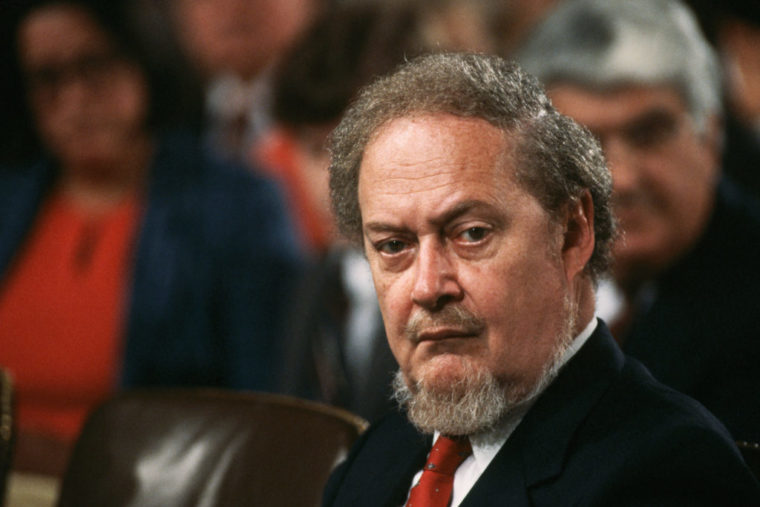Readers of Law and Liberty may have noticed that I am a fan of Justice Antonin Scalia (for example, here and here). I am also an admirer of Robert H. Bork, whom my colleague John McGinnis has described as “the most important legal scholar on the right in the last 50 years.” Bork was a pioneer in both the field of antitrust law (with his influential 1978 book The Antitrust Paradox) and constitutional law, as the father of what we now call “originalism.” In his seminal 1971 article in the Indiana Law Journal, entitled “Neutral Principles and Some First Amendment Problems,”[1] and in his later best-selling books, The Tempting of America (1990) and Slouching Towards Gomorrah (1996), Bork eviscerated the “noninterpretive” theories of constitutional law that dominated the legal academy in the 1960s and 1970s.
For his heresy, and in particular for his outspoken opposition to the judicial recognition of unenumerated rights such as the right of “sexual privacy” in Griswold v. Connecticut[2](the precursor of Roe v. Wade) Bork was shamefully denied confirmation to the U.S. Supreme Court 30 years ago today, on October 23, 1987.
The Bork hearings before the U.S. Senate Judiciary Committee were an unseemly spectacle, surely one of the most disgraceful episodes in the Senate’s history. Less than an hour after President Reagan announced his nomination of Bork, Senator Ted Kennedy (D-Mass.) made one of the most demagogic speeches ever delivered on the Senate floor, accusing Bork of favoring “back-alley abortions,” segregated lunch counters, “rogue police” conducting midnight raids, and similar scurrilous charges.
The nominee later pointed out that “Not one line of that tirade was true,” and many people on the Left knew it, but at the time the anti-Bork sentiment among liberal interest groups was so strong that the media uncritically repeated Kennedy’s (and others’) calumnies. Only upon Kennedy’s death in 2009 did journalists begin to acknowledge that his smear of Bork was entirely false. “But it worked,” as a writer for the Economistnoted.
by Mark Pulliam



